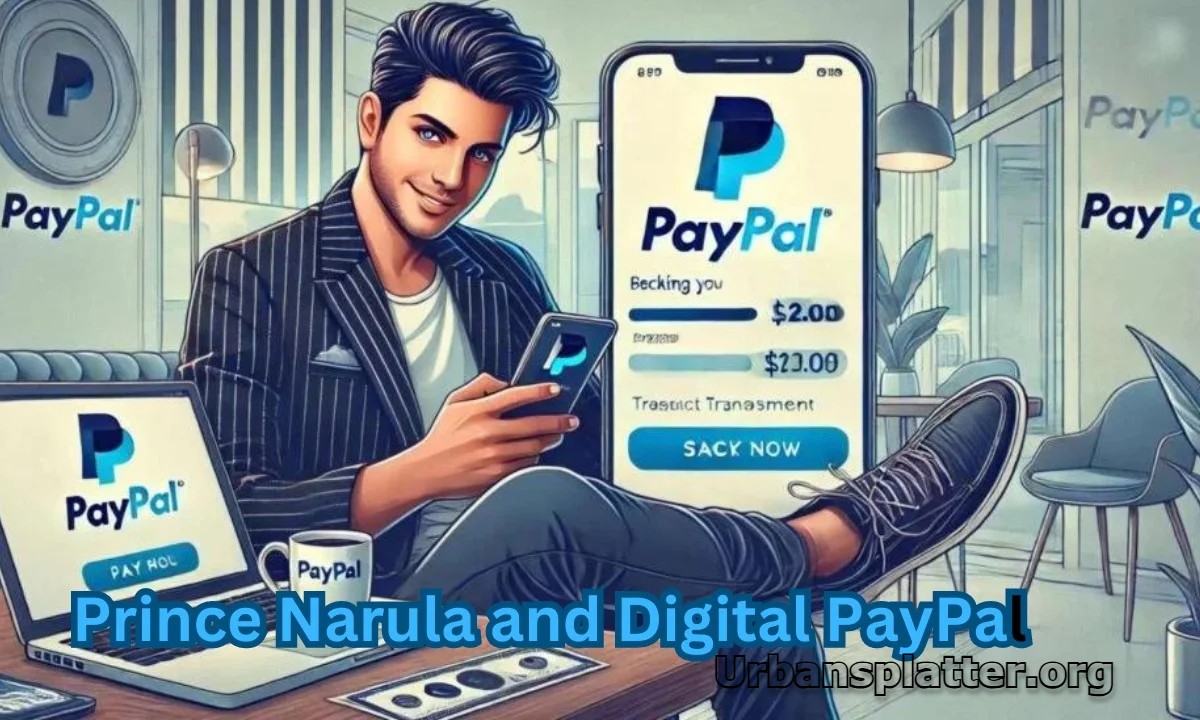When you hear the name Blaine Freidline, you might picture a typical success story hard work, determination, and a touch of luck. However, behind this seemingly straightforward narrative lies a labyrinth of challenges and breakthroughs. Let’s embark on the journey to uncover the unseen complexities of success that not only shaped Blaine’s career but also offered invaluable lessons for anyone striving to excel in their field.
Understanding Success: A Multifaceted Journey
Success is a term often thrown around in conversations, but what does it truly mean? Many people define it by conventional metrics: a high-paying job, a big house, or a fancy car. But is that all there is to it? The reality is much more complex. In this section, we will explore various interpretations of success and how they shape our lives.
Defining Success Beyond Conventional Metrics
When you think of success, what comes to mind? Perhaps it’s a promotion or a significant achievement. However, success is not merely about these milestones. It’s about the journey you take to reach them. It’s about growth, learning, and the experiences you gather along the way.
- Personal fulfillment: Success can mean finding joy in what you do, rather than just chasing a paycheck.
- Impact on others: Making a difference in someone’s life can be a form of success that is often overlooked.
- Work-life balance: Achieving a healthy balance between your professional and personal life is a success in itself.
In many ways, success is a personal definition. It varies from one person to another, shaped by individual experiences, values, and aspirations.
The Evolving Nature of Career Goals
Have you ever noticed how your career goals change over time? What you wanted at 25 may not be what you desire at 35. The world is constantly shifting, and so are our ambitions.
For instance, you might start your career aiming for a corporate ladder climb. But as you gain experience, you may realize that entrepreneurship or creative pursuits resonate more with you. This evolution can be attributed to:
- Life experiences: Each experience teaches you something new, reshaping your goals.
- Changing interests: What excites you today may not hold the same allure years down the line.
- Market dynamics: Industries evolve, and so do the opportunities within them.
Your career path should be a reflection of your current self, not just a checklist of societal expectations News Logic Tech.
How Personal Values Influence Success
Your values play a crucial role in defining what success means to you. They act as a compass, guiding your decisions and shaping your journey. Consider these points:
- Authenticity: Staying true to yourself can lead to a more fulfilling career.
- Integrity: Success achieved through honesty often feels more rewarding.
- Passion: Pursuing what you love can lead to a deeper sense of accomplishment.
When your goals align with your values, you create a roadmap that is uniquely yours. You don’t just chase success; you embrace it.
Examples of Non-Linear Career Paths
Have you ever heard of someone who took a zigzag approach to their career? These non-linear paths can be rich and rewarding. Instead of following a straight line, many people find success by exploring diverse opportunities.
Consider the following:
- Career changes: Many successful individuals switch industries multiple times before finding their niche.
- Side hustles: Starting a passion project can lead to unexpected success.
- Learning new skills: Embracing lifelong learning can open doors to new opportunities.
These examples show that success isn’t a one-size-fits-all concept. It’s about finding what works for you and being open to change.
“Success is a journey, not a destination.” – Blaine Freidline
This quote resonates deeply. It reminds us that the process of pursuing success is just as important as the outcomes we achieve. As you navigate your journey, remember to embrace the twists and turns. Each step contributes to your story.
Ultimately, understanding success requires a willingness to explore, adapt, and redefine what it means to you. It’s an ongoing journey, one that is shaped by your unique experiences and values. So, what does success look like for you?
Blaine’s Early Steps: The Foundation of a Career

Educational Background and Early Motivations
Blaine Freidline’s journey began with a strong educational foundation. He pursued studies that ignited his passion for innovation and creativity. From an early age, he was motivated by a desire to solve problems and make a difference. Education was not just a series of classes for him; it was a launchpad for his growth.
Imagine a young Blaine, sitting in a classroom, absorbing knowledge like a sponge. He was eager to learn, driven by curiosity. This thirst for knowledge laid the groundwork for his future endeavors. It’s crucial to recognize how education shapes our paths. It’s not merely about textbooks it’s about discovering your interests and strengths.
First Professional Experiences: Challenges and Lessons
Transitioning from education to the professional world can be daunting. Blaine faced his share of challenges early in his career. He encountered obstacles that tested his resilience. Each setback was a lesson, teaching him the importance of adaptability and perseverance Lillienu.
- Networking: One key takeaway from Blaine’s early experiences was the value of networking. Building relationships opened doors that would have otherwise remained closed.
- Embracing Failure: Blaine learned that failure is not the end. It’s a stepping stone to success. Each challenge he faced made him stronger and more determined.
Have you ever felt overwhelmed by challenges? Blaine’s story shows that these moments can lead to growth. They shape who you become. His early career experiences were a testament to the idea that persistence pays off.
Influence of Mentors and Role Models on Blaine’s Path
Mentorship played a pivotal role in Blaine’s career. He was fortunate to have mentors who guided him through complex decisions and challenges. Their insights were invaluable. As Blaine once said,
“The right mentor can change the course of your career.” – Blaine Freidline
Mentors provide perspective. They help you navigate the labyrinth of professional life. They offer support when you need it most. Blaine’s mentors not only shared their knowledge but also inspired him to push boundaries. Their influence was a driving force in his journey.
Initial Projects That Sparked His Interest
Early projects were crucial in shaping Blaine’s career. They were not just tasks; they were opportunities to explore his interests further. Each project ignited a spark within him, leading to greater ambitions.
- Innovative Solutions: One of his first projects involved creating innovative solutions that addressed real-world problems. This experience solidified his passion for technology and creativity.
- Collaboration: Working with diverse teams taught him the importance of collaboration. He learned that great ideas often come from combining different perspectives.
Can you recall a project that made you excited about your work? For Blaine, these initial projects were more than just work; they were stepping stones to a fulfilling career. They shaped his approach to challenges and success.
Conclusion
Blaine’s foundational experiences were critical in shaping his approach to challenges and success. His educational background, early professional experiences, mentors, and initial projects all contributed to his growth. Each element played a role in crafting the professional he is today.
Overcoming Adversity: Lessons from Challenges

Life is full of challenges. You know that, right? But how you respond to those challenges defines your journey. Blaine Freidline’s story is a shining example of this. He faced significant obstacles throughout his career. Yet, each hurdle became a stepping stone. This section will explore the lessons learned from adversity, coping strategies, and the importance of resilience.
1. Significant Obstacles Faced During His Career
Blaine encountered numerous challenges that tested his resolve. For instance, early in his career, he faced a major setback when a project he led failed. This was not just a minor issue; it was a significant blow to his confidence. Imagine pouring your heart and soul into something, only to see it crumble. How would you feel? Blaine felt lost but used this experience as a powerful teacher.
Another obstacle was navigating a rapidly changing industry. The digital landscape is ever-evolving. Blaine had to adapt quickly. He learned to embrace change rather than resist it. This shift in mindset was crucial. It allowed him to stay ahead of the curve.
2. Coping Strategies and Mindset Shifts
So, how did Blaine cope with these challenges? Here are some strategies he employed:
- Reflection: Blaine took time to reflect on his experiences. This helped him understand what went wrong and how to improve.
- Seeking Support: He reached out to mentors and peers. Sharing struggles can lighten the load.
- Positive Thinking: Adopting a positive mindset was a game-changer. Instead of seeing failure as the end, he viewed it as a lesson.
These strategies were not just about coping; they were about growth. Blaine shifted his perspective. He started to see challenges as opportunities. As he famously said,
“Every challenge is an opportunity to grow and innovate.” – Blaine Freidline
3. How Adversity Can Lead to Unexpected Opportunities
Adversity can seem daunting. But it often opens doors you never knew existed. Blaine’s experiences illustrate this perfectly. After his initial failure, he was determined to succeed. He took the lessons learned and applied them to future projects. This led to innovative solutions that set him apart from his peers.
For example, by embracing technology, he developed new strategies that transformed his approach. Instead of sticking to traditional methods, he explored cutting-edge tools. This not only improved efficiency but also enhanced creativity. The result? New opportunities that he never anticipated.
4. The Importance of Resilience in a Competitive Landscape
In today’s fast-paced world, resilience is more important than ever. You need to bounce back from setbacks quickly. Blaine understood this. He recognized that resilience is not just about enduring challenges; it’s about thriving despite them.
Here’s why resilience matters:
- Adaptability: Resilient individuals adapt to change. They don’t fear it; they embrace it.
- Problem-Solving: Challenges often require creative solutions. Resilient people are more likely to think outside the box.
- Long-Term Success: Those who can withstand adversity often achieve greater success in the long run.
Blaine’s journey is a testament to the power of resilience. He turned liabilities into assets through strategic thinking. This mindset shift allowed him to navigate the complexities of his career effectively.
In conclusion, overcoming adversity is not easy. But it is possible. Blaine Freidline’s story teaches us that challenges can be our greatest teachers. By adopting the right coping strategies and maintaining resilience, you can turn obstacles into opportunities. Remember, every challenge is a chance to grow and innovate. So, the next time you face a hurdle, ask yourself: What can I learn from this?
Adapting to the Digital Landscape

In today’s fast-paced world, technology shapes our career paths like never before. It’s not just about having a job anymore; it’s about navigating the digital landscape. You might wonder, how does technology affect your career trajectory? Well, let’s dive into this essential topic.
The Impact of Technology on Career Trajectories
Technology is a game changer. It creates new opportunities and alters existing ones. For instance, many jobs that existed a decade ago have disappeared, while new roles have emerged. Think about it: how many people were working in digital marketing ten years ago? Not many. Now, it’s a booming field. The rise of AI, machine learning, and data analytics has transformed the job market.
Here are some key points to consider:
- Emergence of New Roles: Roles like data scientist or social media manager didn’t exist a few years back.
- Job Displacement: Automation can replace repetitive jobs, making adaptability crucial.
- Remote Work: Technology has enabled a shift to remote work, changing how we view the workplace.
As Blaine Freidline wisely said,
“Adaptability is not just an asset; it’s a requirement for success.”
This statement rings true in the digital age. You must be ready to learn and adapt continuously.
Strategies for Leveraging Digital Tools for Growth
So, how can you harness technology for your career growth? Here are some strategies:
- Embrace Continuous Learning: Online courses and webinars can help you keep your skills sharp. Platforms like Coursera and Udemy offer a plethora of resources.
- Network Digitally: Use LinkedIn to connect with industry professionals. Networking can lead to job opportunities and collaborations.
- Utilize Productivity Tools: Tools like Trello or Asana can help you stay organized and manage your projects effectively.
- Stay Updated: Follow industry trends and news. Websites like TechCrunch and Wired are great for this.
By employing these strategies, you can stay ahead of the curve and make the most of the digital landscape.
Real-World Examples of Digital Transformation in Blaine’s Journey
Blaine’s story is a testament to the power of digital transformation. He embraced technology at every stage of his career. For example, when he started his journey, he took online courses to enhance his skills. This proactive approach allowed him to pivot into new roles as technology evolved.
He also utilized social media to build his brand. By sharing his insights and experiences, he connected with others in his field. This not only expanded his network but also opened doors to new opportunities. His journey illustrates how embracing digital tools can lead to significant career advancements.
Emphasizing Skills Relevant in Today’s Digital Age
In the digital age, certain skills are more valuable than ever. Here’s a list of essential skills you should focus on:
- Data Literacy: Understanding data is crucial. It helps in making informed decisions.
- Digital Communication: Effective communication through digital platforms is key in remote work environments.
- Tech Savviness: Being comfortable with various technologies can set you apart from others.
- Problem-Solving: The ability to tackle challenges using digital tools is a highly sought-after skill.
These skills not only enhance your employability but also prepare you for the future. The digital world is ever-changing, and being equipped with the right skills is essential.
Blaine’s adaptation to the digital world provides insights for professionals in a rapidly changing environment. By understanding the impact of technology, leveraging digital tools, and emphasizing relevant skills, you can navigate your career successfully in this digital landscape.
The Role of Innovation in Success

Defining Innovation in a Personal Context
What does innovation mean to you? It’s not just about coming up with new ideas. It’s about making improvements. Think of it as a journey. Every small step counts. Innovation can be as simple as tweaking an existing process to make it more efficient. Or, it can be a groundbreaking idea that transforms an industry. You have to ask yourself: how can you innovate in your daily life?
Key Innovations That Influenced Blaine’s Work
Blaine Freidline’s career is a testament to the power of innovation. His journey showcases several key innovations that made a significant impact. For instance:
- Technology Integration: Blaine embraced new technologies early on. This allowed him to streamline processes and enhance productivity.
- Creative Problem Solving: Instead of following traditional paths, he often sought unique solutions to complex challenges.
- User-Centric Design: By prioritizing the user experience, Blaine created products that resonated with customers.
These innovations didn’t just help Blaine succeed. They shaped the way he approached his work. Each step was a learning opportunity, guiding him toward greater achievements.
Collaboration and Partnerships as a Source of Innovative Ideas
Have you ever thought about the power of collaboration? Blaine understood that working with others can spark creativity. Partnerships can lead to fresh ideas and unique perspectives. When you collaborate, you combine strengths. This synergy can produce innovative solutions that you might not discover alone.
For example, Blaine often teamed up with experts in various fields. This cross-pollination of ideas led to innovative projects. It’s like a potluck dinner where everyone brings something different to the table. The result? A richer experience for everyone involved.
Navigating the Fine Line Between Creativity and Practicality
Innovation is exciting, but it can also be daunting. How do you balance creativity with practicality? This is a question that many innovators face. Blaine often found himself at this crossroads. He knew that while creativity is essential, it must be grounded in reality.
Consider this: you might have a fantastic idea, but if it’s not feasible, what’s the point? Blaine learned to assess the viability of his ideas. He would ask questions like:
- Is this solution realistic?
- Can we implement it within our budget?
- What resources do we need?
By navigating this fine line, Blaine could harness creativity without losing sight of practical application. It’s like walking a tightrope. One misstep can lead to a fall, but with careful balance, you can reach new heights.
Innovation Isn’t Just New Ideas
It’s essential to recognize that innovation isn’t solely about new ideas. It’s also about improvement. Blaine’s projects often revolved around enhancing existing systems. For instance, he took a traditional approach and reimagined it. The result? A more efficient, user-friendly process that benefitted everyone.
Think about your own experiences. Have you ever improved a task in your life? That’s innovation too! It’s about finding better ways to do things, no matter how small.
“Innovation is the bridge between challenges and solutions.” – Blaine Freidline
In the end, innovation is a vital part of success. It’s about growth, learning, and adapting. Blaine Freidline’s journey shows us that by embracing innovation, we can transform not just our careers, but our lives. So, what innovative steps can you take today? The possibilities are endless!
Cultivating a Success-Focused Mindset

Success isn’t just about reaching the top. It’s about how you think, act, and respond to challenges along the way. Your mindset plays a crucial role in this journey. Let’s break down what it means to cultivate a success-focused mindset and explore key traits and habits that can help you thrive.
Key Traits of Successful Individuals
What sets successful people apart? Here are some key traits that they often share:
- Resilience: They bounce back from setbacks. When faced with challenges, they see opportunities to grow.
- Discipline: Successful individuals stick to their routines. They prioritize their goals and make consistent efforts.
- Adaptability: Change is a constant. Those who succeed can pivot and adjust their strategies as needed.
- Positive Attitude: They maintain a hopeful outlook. A positive mindset can turn obstacles into stepping stones.
These traits aren’t innate. You can develop them through practice and commitment. Ask yourself, “Which of these traits do I need to work on?” This self-reflection is the first step toward improvement.
The Importance of Continuous Learning
In today’s fast-paced world, learning never stops. Continuous learning is vital for personal and professional growth. Why? Because knowledge is power.
- Staying Relevant: Industries evolve. To keep up, you must learn new skills and adapt to changes.
- Boosting Confidence: The more you learn, the more confident you become. Knowledge gives you the tools to tackle challenges head-on.
- Networking Opportunities: Learning often leads to meeting new people. These connections can open doors you never knew existed.
Consider setting aside time each week to read, take a course, or attend workshops. It’s an investment in your future. Remember, “Your mindset can be your strongest ally or your toughest opponent.” – Blaine Freidline. Choose to make it an ally through continuous learning.
How Perspective Influences Daily Operations
Have you ever noticed how your perspective shapes your day? A positive outlook can transform mundane tasks into opportunities for growth. Here’s how perspective impacts your daily operations:
- Problem-Solving: A constructive perspective helps you view problems as puzzles to solve rather than obstacles.
- Motivation: When you see the potential for success, you’re more likely to stay motivated and engaged.
- Collaboration: A positive mindset fosters better teamwork. You’re more likely to support and uplift your colleagues.
Try reframing challenges as learning experiences. Ask yourself, “What can I learn from this situation?” This shift in perspective can lead to breakthroughs.
Mindfulness and Its Role in Professional Resilience
Mindfulness is more than a buzzword. It’s a powerful tool for building resilience. By practicing mindfulness, you can enhance your ability to handle stress and stay focused.
- Stress Reduction: Mindfulness practices, like meditation, can lower stress levels. Less stress means clearer thinking.
- Enhanced Focus: Being present helps you concentrate on the task at hand, improving your productivity.
- Emotional Regulation: Mindfulness teaches you to respond rather than react. This skill is crucial in high-pressure situations.
Consider integrating mindfulness into your daily routine. Even a few minutes of deep breathing can make a difference. Ask yourself, “How can I be more present today?” This simple question can lead to significant changes in your approach to work.
Personal Anecdotes and Mindset Shifts
Many successful individuals share personal stories of how small daily habits led to big changes. For instance, waking up early to exercise can set a positive tone for the day. Or, taking time to reflect on your goals can refocus your efforts. These habits, though simple, can lead to profound shifts in mindset.
Think about your own daily routines. What habits contribute to your success? Reflecting on these can provide insights into how to cultivate a success-focused mindset.
In the journey of success, mindset shapes not only individual behaviors but also the overall outcome. By recognizing the traits that lead to success, committing to continuous learning, shifting your perspective, and practicing mindfulness, you can cultivate a mindset that propels you toward your goals.
Takeaways from Blaine’s Journey: Your Path to Success

As we wrap up our exploration of Blaine’s journey, it’s essential to reflect on the key lessons learned. Blaine’s experiences offer valuable insights that can guide you on your path to success. So, what can you take away from his story? Let’s break it down.
Key Lessons Learned
Blaine’s journey is a testament to resilience and adaptability. Here are some key lessons you might find useful:
- Embrace Change: Change is a constant in life. Blaine learned to adapt and thrive in ever-evolving circumstances.
- Stay Committed: Commitment to your goals is crucial. Blaine’s dedication kept him moving forward even when faced with obstacles.
- Seek Knowledge: Continuous learning is vital. Blaine never stopped seeking new knowledge and skills.
- Value Relationships: Building a network of supportive relationships opened doors for Blaine. Connections matter.
Applying Insights to Your Journey
Now that we’ve summarized the key lessons, how can you apply these insights to your journey?
First, take a moment to reflect on your experiences. What challenges have you faced? How did you overcome them? This reflection can help you identify patterns and strategies that work for you.
Next, set tailored goals that resonate with your aspirations. Blaine’s journey teaches us that one size does not fit all. What works for someone else may not work for you. So, be sure to create a roadmap that aligns with your unique vision.
Embrace Your Uniqueness
In a world that often pushes conformity, embracing your uniqueness is vital. Blaine’s story illustrates that success is not a one-size-fits-all concept. Instead, it’s about carving your path.
Ask yourself: What makes you unique? What skills or experiences set you apart? By recognizing and valuing your individuality, you can forge a career path that truly reflects who you are.
Creating Your Definition of Success
Success is a deeply personal concept. Blaine’s journey encourages you to define success on your terms. Is it about financial stability? Personal fulfillment? Making a difference in your community? The choice is yours.
Take a moment to write down what success means to you. This exercise can help clarify your goals and motivate you to pursue them. Remember, your definition of success may evolve, and that’s perfectly okay.
Reflecting on Your Journey
As you navigate your path, remember to reflect on your journey regularly. This practice can help you stay aligned with your goals and values. Are you moving in the right direction? What adjustments might you need to make?
It’s also essential to acknowledge your achievements, no matter how small. Each step forward is a victory worth celebrating. Blaine’s journey reminds us that success is often a series of small wins that lead to significant achievements.
The Importance of Tailored Goals
Finally, let’s talk about the importance of setting tailored goals. Blaine’s experiences highlight that generic goals may not resonate with everyone. Instead, focus on what you want to achieve.
Consider breaking your goals into smaller, actionable steps. This approach can make daunting tasks feel more manageable and provide a sense of accomplishment along the way.
In conclusion, Blaine’s journey offers a treasure trove of insights for anyone looking to carve their path to success. By embracing change, staying committed, valuing relationships, and defining success on your terms, you can create a fulfilling career that resonates with your true self. Remember, your journey is uniquely yours. Embrace it, learn from it, and let it guide you to the success you envision.















